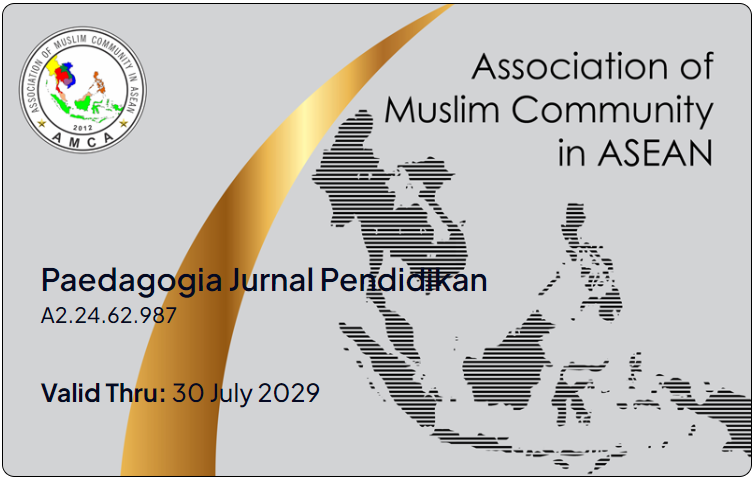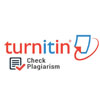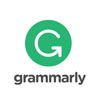STUDENTS’ PERCEPTION OF DIGITAL STORYTELLING TO IMPROVE SPEAKING SKILL AT AN INDONESIAN ISLAMIC HIGHER EDUCATION
Abstract
Digital storytelling is a method that combines the art of storytelling with digital media in various forms such as videos, images, text, and so on. Digital storytelling integrates technology into the classroom to facilitate the learning process. Especially in English language learning, this method supports the improvement of students' English language skills. This study aims to identify students' perceptions of digital storytelling to improve students' speaking skills at an Indonesian Islamic college. This mixed-method study involved 30 second-semester students at Datokarama State Islamic University in Palu. Quantitative data using questionnaires were analysed based on percentages while qualitative data in the form of interviews were analysed with three stages, namely, data reduction, display, and verification. Five aspects of perception are of concern in this study, namely attitude, motivation, interest, experience, and expectations. The research results from the five aspects prove that students have a positive perception of the use of digital storytelling in improving their speaking skills. Digital storytelling makes it easier for students to understand the material well, gives them confidence in interacting and cooperating in the classroom, and creates a fun learning process.
Downloads
References
Arroba, Juan, and Hazel Acosta. “Authentic Digital Storytelling as Alternative Teaching Strategy to Develop Speaking Skills in Efl Classes.” LEARN Journal: Language Education and Acquisition Research Network 14, no. 1 (2021): 317–43.
Choo, Yee Bee, Tina Abdullah, and Abdullah Mohd Nawi. “Digital Storytelling vs. Oral Storytelling: An Analysis of the Art of Telling Stories Now and Then.” Universal Journal of Educational Research 8, no. 5 A (2020): 46–50. https://doi.org/10.13189/ujer.2020.081907.
Creswell, John W. Educational Research; Planning, Conducting and Evaluating Quantitative and Qualitative Research. Fourth Edi. Pearson, 2012.
Dzulkifli Isadaud, M.Dzikrul Fikri, and Muhammad Imam Bukhari. “The Urgency Of English In The Curriculum In Indonesia To Prepare Human Resources For Global Competitiveness.” DIAJAR: Jurnal Pendidikan Dan Pembelajaran 1, no. 1 (2022): 51–58. https://doi.org/10.54259/diajar.v1i1.177.
Harmer, Jeremy. The Practice of English Language Teaching. Fifth Edit. Slovakia: Pearson Education, 2015.
Hava, Kevser. “Exploring the Role of Digital Storytelling in Student Motivation and Satisfaction in EFL Education.” Computer Assisted Language Learning 34, no. 7 (2021): 958–78. https://doi.org/10.1080/09588221.2019.1650071.
Indramawan, Anik, and Dr Akhyak. “Improving the Students’ English Speaking Competence through Storytelling (Study in Pangeran Diponegoro Islamic College (STAI) of Nganjuk, East Java, Indonesia).” International Journal of Language and Literature 1, no. 2 (2013): 18–24.
Juliana, Juliana. “The Role of Technology in Innovating English Teaching to Improve Learning Outcomes in the Digital World.” International Journal of Linguistics, Literature and Culture 8, no. 4 (2022): 111–22. https://doi.org/10.21744/ijllc.v8n4.2095.
Kallinikou, Emily, and Iolie Nicolaidou. “Digital Storytelling to Enhance Adults’ Speaking Skills in Learning Foreign Languages: A Case Study.” Multimodal Technologies and Interaction 3, no. 3 (2019). https://doi.org/10.3390/mti3030059.
Leong, L M, and S M Ahmadi. “AN ANALYSIS OF FACTORS INFLUENCING LEARNERS’ENGLISH SPEAKING SKILL.” International Journal of Research in English Education, 2017, 34–41. https://www.sid.ir/en/journal/ViewPaper.aspx?ID=520992.
Liu, Kuo-Ping, Shu-Ju Diana Tai, and Chen-Chung Liu. “Enhancing Language Learning through Creation: The Effect of Digital Storytelling on Student Learning Motivation and Performance in a School English Course.” Educational Technology Research and Development 66 (2018): 913–35.
Manuel, Leonard C. “THE EFFECT OF TECHNOLOGY RESOURCES ON COLLEGE SOPHOMORES’READING HABITS IN ILOCOS SUR POLYTECHNIC STATE COLLEGE PHILIPPINES.” Jurnal Pendidikan 11, no. 1 (2022).
McLellan, Hilary. “Storytelling in Higher Education.” Diversity in Higher Education 19, no. 1 (2016): 177–82. https://doi.org/10.1108/S1479-364420160000019009.
Miles, Matthew B, A. Michael Huberman, and Johnny Saldana. Qualitative Data Analysis. Edition 3. United States of America: Sage Publication, Inc., 2014.
Mirza, Hanadi S. “Improving University Students ’ English Proficiency.” International Online Journal of Education and Teaching 7, no. 1 (2020): 84–94.
Munajah, Robiatul, Mohammad Syarif Sumantri, and Yufiarti Yufiarti. “The Use of Digital Storytelling to Improve Students’ Writing Skills.” Advances in Mobile Learning Educational Research 3, no. 1 (2022): 579–85. https://doi.org/10.25082/amler.2023.01.006.
Nair, Viknesh, and Melor Md Yunus. “A Systematic Review of Digital Storytelling in Improving Speaking Skills.” Sustainability, 2021, 1–15.
Nam, Chang Woo. “The Effects of Digital Storytelling on Student Achievement, Social Presence, and Attitude in Online Collaborative Learning Environments.” Interactive Learning Environments 25, no. 3 (2017): 412–27. https://doi.org/10.1080/10494820.2015.1135173.
Nanda, Krisna Ariesta, Tania Safira Putri, Emma Meiliza Afifah, Siti Ema Nofianti, Inke Putri Agustin, and Hazhira Qudsyi. “Pengaruh Metode Pembelajaran Flash Card Terhadap Keterampilan Berbicara Bahasa Inggris Pada Siswa Sekolah Dasar.” Jurnal RAP (Riset Aktual Psikologi Universitas Negeri Padang) 11, no. 1 (2020): 25. https://doi.org/10.24036/rapun.v11i1.107789.
Nassim, Shahala. “Digital Storytelling: An Active Learning Tool for Improving Students’ Language Skills.” International Journal of Teaching, Education and Learning 2, no. 1 (2018): 14–29. https://dx.doi.org/10.20319/pijtel.2018.21.1429.
Nazara, Situjuh. “Students’ Perception on EFL Speaking Skill Development.” JET (Journal of English Teaching) 1, no. 1 (2011): 29–43. http://ejournal.uki.ac.id/index.php/jet/article/view/50.
Okumuş, Ayşegül. “The Perceptions and Preferences of 8th Grade Students in Digital Storytelling in English.” International Online Journal of Education and Teaching (IOJET) 7, no. 2 (2020): 585–604. http://iojet.org/index.php/IOJET/article/view/654.
Rahimi, Mehrak, and Samaneh Yadollahi. “Effects of Offline vs. Online Digital Storytelling on the Development of EFL Learners’ Literacy Skills.” Cogent Education 4, no. 1 (2017). https://doi.org/10.1080/2331186X.2017.1285531.
Rao, P, Srinivas. “The Importance of Speaking Skills in English Classrooms.” Alford Council of International English & Literature Journal 2, no. 2 (2019): 6–18. www.acielj.com.
Robin, Bernard R, and Sara G McNeil. “Digital Storytelling.” In The International Encyclopedia of Media Literacy, 1–24, 2019. https://doi.org/10.1002/9781118978238.ieml0056.
Sembiring, Desty Laura Br, and Debora Chaterin Simajuntak. “Digital Storytelling as an Alternative Teaching Technique to Develop Vocabulary Knowledge of EFL Learners.” Journal of Languages and Language Teaching 11, no. 2 (2023): 211. https://doi.org/10.33394/jollt.v11i2.7523.
Sudarmaji, Imam, Agus Mulyana, and Karsiyah Karsiyah. “Applying Digital Storytelling To Improve Indonesian High School Students’ Visual Memory and Writing Skill.” English Review: Journal of English Education 8, no. 2 (2020): 91. https://doi.org/10.25134/erjee.v8i2.2987.
Syafryadin, Syafryadin, Haryani Haryani, Salniwati Salniwati, and Ainur Rosyidah Azmie Putri. “Digital Storytelling Implementation for Enhancing Students ’ Speaking Ability in Various Text Genres.” International Journal of Recent Technology and Engineering (IJRT) 8, no. 4 (2020): 3147–51.
Tahriri, Abdorreza, Maryam Danaye Tous, and Solmaz Movahedfar. “The Impact of Digital Storytelling on Efl Learners’ Oracy Skills and Motivation.” International Journal of Applied Linguistics and English Literature 4, no. 3 (2015): 144–53. https://doi.org/10.7575/aiac.ijalel.v.4n.3p.144.
Tanrıkulu, Fatih. “Students’ Perceptions about the Effects of Collaborative Digital Storytelling on Writing Skills.” Computer Assisted Language Learning 35, no. 5–6 (2022): 1090–1105. https://doi.org/10.1080/09588221.2020.1774611.
Yocom, Danielle, Cynthia Bashaw, Deborah Price, and Michelle Cook. “Perceptions of Digital Storytelling in the Classroom.” Teaching and Learning in Nursing 15, no. 3 (2020): 164–67. https://doi.org/10.1016/j.teln.2020.01.010.
Copyright (c) 2023 Paedagogia: Jurnal Pendidikan

This work is licensed under a Creative Commons Attribution-NonCommercial 4.0 International License.
The author agrees to the following conditions upon publishing a work to Paedagogia: Jurnal Pendidikan:
1. Each article is licensed under a Creative Commons Attribution-NonCommercial 4.0 International License. The author(s) recognizes that Paedagogia: Jurnal Pendidikan has the right to be the first to publish under a Creative Commons Attribution-NonCommercial 4.0 International License. This license permits the copying and redistribution of this material in any form or format, as well as the composition, modification, and creation of derivative works of this material for any purpose, but Non commercial, as long as the author is credited with the original work.
2. Authors may submit articles separately or arrange for non-exclusive distribution of manuscripts previously published in this journal in other forms (e.g., to the author's institutional repository, publication in books, etc. ), provided that the manuscript is acknowledged as having been published first in the Paedagogia: Jurnal Pendidikan.
3. A copyright submission agreement must attach each approved manuscript prior to publication. You may obtain the form for the copyright submission agreement here (INA) (EN).





























 This work is licensed under a
This work is licensed under a 